#superhero analysis
Text
Batman is interesting as a superhero because he is one of the only superheroes I know about that like. Went out of thier way to become a superhero?
Before his parents died he was effectively a normal rich human kid.
Like 99.99% of superhero fiction the mc is a special person who decides to become a superhero because of shenanigans.
Spiderman didn't go and get bit by a spider to become Spiderman, that shit kind of happened and now he has a responsibility to help others.
The tragedy of batman is that "become a superhero" Is a abysmal ideal that Bruce Wayne had the ability to achieve.
#batman#superhero#genre analysis#superhero genre#superhero analysis#my hero acedamia#yes i know that deku becomes a superhero yes ive heard of kick ass#batfam
19 notes
·
View notes
Text
I just realized something so sweet and personal about Will's painting.
Their DnD characters don't look like that. We saw him draw them plenty in season 1. Will the Wise has a long beard and Mike's character I think has straight blond hair.
Will didn't just draw their characters per usual, he drew them as their characters. He's drawn Mike's knight character a hundred times. But he's never drawn Mike as a knight. He was understanding that Mike's character is a projection of who he aims to be, like all of them, so he drew MIke as the knight this time. For the first time.

That's what this smile is. Mike has played a hero for years. But he's never been one. He saw a dragon and probably expected his character, overjoyed with more of Will's familiar art, but instead, he was met with a glorious knight in shining armor with black, wavy hair. He was the hero this time. *(you can even see his facial expression change from happy excitement to this broad smile)
In season 1, Mike initiates the search party because of Will's heroics in DnD meaning that he would do it for them. He acknowledges that Will's actions in character are still his own. This is the same. This is Will saying "To play a hero, you have to be one yourself. And you are. I see through your character disguise. I see you. This is just the hero you've always been without the mask."
THAT is why it's different. THAT is why it's so much more personal than all the others, not just the heart, MIKE. THAT is why it hurts so bad (Will too but I'm referring to me/us).
I've said in a previous post that it wasn't about the heart, the heart was kind of for us, it was more-so about the heroism. And that's exactly what I standby. The heart isn't the only new thing about this painting. The hero has never actually been Mike before. And Will responded "Yes it has been. It always has been."
#the painting#byler#the van scene#byler analysis#mike wheeler#i might cry wtf#will byers the way you love#you love like#well you love like mike wheeler#you love like the party#you love the way the people you love love#and that is so beautiful#will byers <3#will byers#THEIR LOVE#mike calling Will a hero and Dustin a superhero in episode 1.#to this.#he finally gets it back#that one meme but in earnest#'i'm the hero?'#'you always have been'#and also without the gun in the meme#they've had enough guns this season#(they the boys never nancy)#stranger things#mike wheeler hero
325 notes
·
View notes
Text
The Small Back Room — Hour of Glory (1949)
Good Omens 2 begins with the visit to The Small Back Room not because it was meant to serve as an exposition scene for Maggie and her record shop. It’s a substantial foreshadowing of the main plot and the relationship changes between Aziraphale and Crowley.
As all the other classics referenced throughout the show, this 1949 Powell and Pressburger production is easily available online — whenever you have 100 minutes to spare, I highly encourage you to watch it.
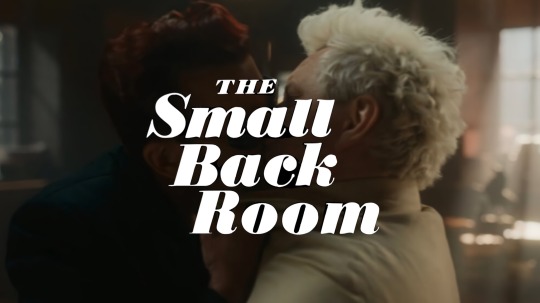
Our story begins with the arrival of Stuart, a British military captain, who makes his way through a labyrinth of offices towards a small building — the research section led by an eccentric, queer-coded, bow tie wearing professor Mair — to ask for help with a secret Nazi weapon.
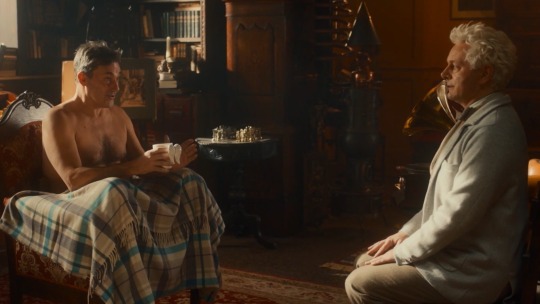
That’s when the professor calls our hero, Sammy Rice — an engineer and bomb disposal expert in the service of Her Majesty’s government and, not accidentally, the most brooding, wounded man in Powell and Pressburger’s impressive canon of dysfunctional and alienated characters.
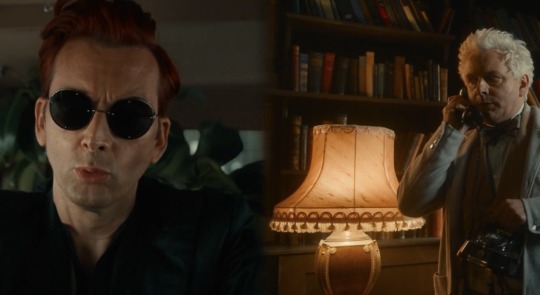
Due to a prosthetic foot keeping him from active service and confining to work in the titular back room instead, Rice is dramatically slipping into alcoholism. Haunted by self-loathing and disappointment with the internal politics, he can’t see the point of his research anymore.
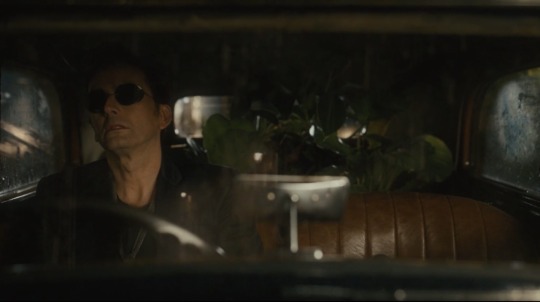
Sammy is also conducting a clandestine affair with the secretary of his research unit, Susan. They live in the same building and meet regularly, but can’t openly enjoy their company or even dance due to his injury, which makes him even more bitter and pathologically determined to wear her angelic patience down.
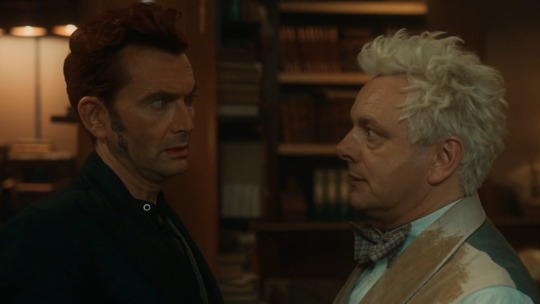
Susan puts up with it until the minister is forced to resign. She knows that if non-scientists take over, their section will become useless, Rice even more difficult, and the war possibly lost. She urges him to take action and when he dramatically refuses to make a difference, she leaves him.
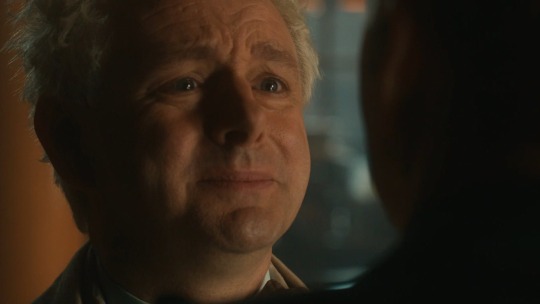
Seemingly at his lowest now, Rice becomes a sudden chance to redeem himself. Captain Stuart calls him about two unexploded booby traps found in Wales, but left to himself, he dies during a heroic attempt to dismantle one of the thermos-like devices before our engineer arrives at the scene.
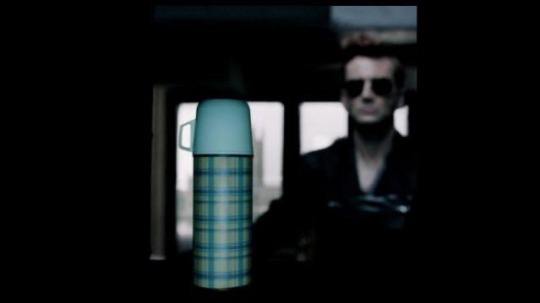
In a nerve-jangling finale, Stuart’s notes help Rice dismantle the second device. He becomes a hero, gets an officer commission as head of the new scientific unit, and discovers that Susan not only came back in the meantime, but repaired everything he drunkenly destroyed in the apartment after their breakup.
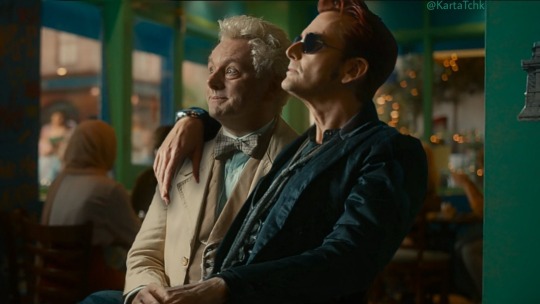
The parallels seem straightforward enough for me to add that in this context the role of Maggie through most of S2 may particularly reflect Crowley’s stagnancy in both work and love life. And if you’re unsure why the demon identifies with the heroic roles and characters, you might want to read this post on the subject.

Now, The Small Back Room was distributed in the US under another title — Hour of Glory. Which happens to be a specific Bible term referring to Christ’s “hour”, the period supposed to consummate all of his work on Earth and reveal God’s ultimate plan of salvation: the Son’s death.
John 12:20-36 Jesus replied, “The hour has come for the Son of Man to be glorified. Very truly I tell you, unless a kernel of wheat falls to the ground and dies, it remains only a single seed. But if it dies, it produces many seeds. Anyone who loves their life will lose it, while anyone who hates their life in this world will keep it for eternal life. Whoever serves me must follow me; and where I am, my servant also will be. My Father will honor the one who serves me. Now my soul is troubled, and what shall I say? ‘Father, save me from this hour’? No, it was for this very reason I came to this hour. Father, glorify your name.” Then a voice came from heaven, “I have glorified it, and will glorify it again.” The crowd that was there and heard it said it had thundered; others said an angel had spoken to him. Jesus said, “This voice was for your benefit, not mine. Now is the time for judgment on this world; now the prince of this world will be driven out. And I, when I am lifted up from the earth, will draw all people to myself.”
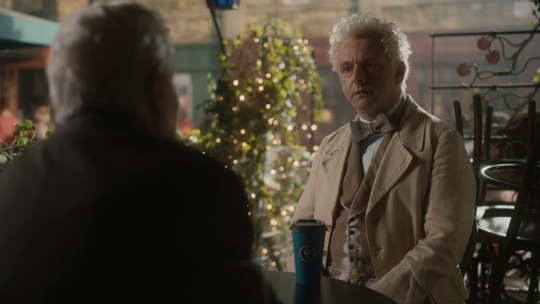
Christ’s hour began in the garden — this time the garden of Gethsemane — as he prayed passionately for the cup to be passed from him, similarly to Aziraphale declining Metatron’s offers on screen, both regarding the hot drink and his reinstatement as part of the Heavenly Host:
Luke 22:42 “Father, if you are willing, please take this cup of suffering away from me. Yet I want your will to be done, not mine.”
All throughout the Old Testament, we see God’s wrath being described as a cup poured out on sin and those guilty of it. By accepting it, Jesus took the toll of all the sins — from Eden up until the last one to be committed right before his Second Coming — on himself, for the sake of his beloved humanity.
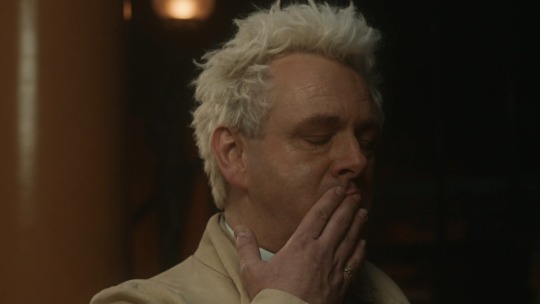
The passion of Christ continued as Judas betrayed him with a kiss, his disciples abandoned him, and the high priest accused him of crimes he was not guilty of. Even Pilate, the prefect of Rome, pretended to uphold the law; and remember we already expect a S3 trial based on another Archers movie.
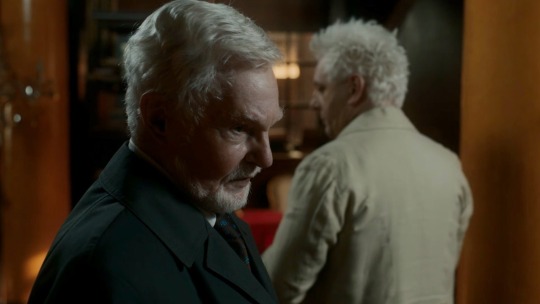
All in all, it’s an hour of great injustice and pain, but also glory of God. We’re led to believe that the Ineffable Plan will similarly triumph over the great one (or whatever Metatron tries to implement at the moment), as it did in S1. And its ending will be a good one, back in a garden.
#bible fanfiction#actually quoting bible#cup of suffering#give me coffee or give me death#the small back room#hour of glory#good omens#good omens meta#good omens analysis#final fifteen#crowley#crowley is a superhero#aziraphale#supreme archangel aziraphale#ineffable husbands#yuri is doing her thing#drinking coffee#an oat milk latte with a dash of almond syrup
56 notes
·
View notes
Text
Thinking again about how, in a very real way, the job of superheroes in the worm universe is just to die. They’re valued and, indeed, tolerated because of this unspoken assumption that they’re going to throw themselves into the meatgrinder and buy the normies a few more years unmurdered, be that by Endbringers, The Slaughterhouse 9 or other superpowered spree-shooters, or by supervillains who decide to go full feudal warlord or Nilbog-style God-king. It’s a situation where some of the most vulnerable people in earth bet society are being taken from a place of extreme trauma and then simultaneously venerated and marched to their deaths, with the brutality of what the government is pitting children against played down so that the public can sleep easy.
The whole situation with the Wards always hit like the Hunger Games to me, where you’re sinking this huge budget into making larger-than-life idols of the kids, making sure everyone knows their names, and then memory-holing the ones who predictably die in short order so that the machine can keep running smoothly without public discontent. And, again, I gotta stress that it’s not nearly as inherently evil in my view- you’re sending those kids to deal with all-hands-on-deck situations that they specifically are genuinely needed for- but even if you accept that it’s necessary, the utilitarian calculus is made behind closed doors, and nobody ever reckons with it, nobody ever publicly faces down the tradeoff being made, nobody ever looks it in the eye and says, “yeah, we’re comfortable sacrificing the few for the many.” They dress it up in a costume and parade it around like a sports team and sweep the ugliness under the rug.
Thinking about Vista thinks about the subdued, greyed out memorial posters of Aegis and Gallant, wondering how long until it’s her. Thinking about Victoria, inculcated into heroism as a lifestyle, privately ideating on at least getting to die heroically instead of anticlimactically like her aunt. Thinking about that Short story Wildbow wrote about the child of a hero who’s less angry about the gangsters who killed his mother than he is about how quickly the local protectorate redid all the branding to de-emphasize her, because a brutal execution is bad publicity. Thinking about Bastion, whose bright idea to rehab his image in the face of racism allegations is to sacrifice himself. Thinking about how Yamada fights uphill to accomplish something useful with the half-assed, fig-leaf therapy process provided to the Wards, fundamentally unable to get around the core issue that her patients are child superheroes, having no real answer to Vista’s ultimately-correct core assertion that everyone she loves is probably going to die, and only being able to offer a mindset that’ll make that everyone-dying process suck less. It’s not the kind of superhero setting where death is cheap, but Jesus, human life sure is.
661 notes
·
View notes
Text
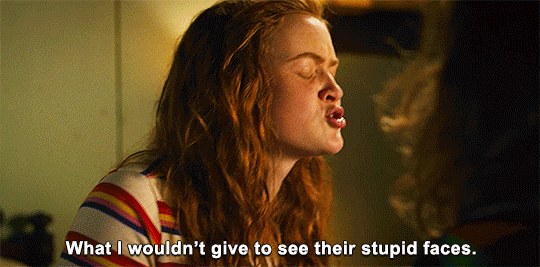
thinking about how Max was the first time in her whole life that El ever got to experience wanting to show someone her powers.
not because she was asked. not because somebody's life is on the line. but just because she feels like it, for fun.
Max wasn't trying to shift blame when she told Mike the spying was El's idea. it really was. El brought it up herself, and that distinction is important to Max. I don't think she was hinting here (I don't think she even knew about El's remote viewing thing) but I do think she probably made a conscious choice to refrain from ever asking El to use her powers, because she heard how the boys talked about her, and saw how she was rarely allowed out, and she cared so much about El having her own agency and identity and feeling seen just as a person.
Max is the only of El's loved ones who waited for her to offer instead of asking, and you can't tell me El doesn't love her for that.
#max mayfield#elmax#the funniest part about the spy scene is max never did see their stupid faces and el never even described what she saw#max likes superheroes. there's no way she didn't daydream about el's powers between 2 and 3#there's no way she wouldn't think itd be awesome to see el make stuff zoom around her bedroom#but she didn't want el to feel like she's one more person who just sees her for her powers#mine#character analysis
538 notes
·
View notes
Text
HOW TO TREAT YOUR GIRLFRIEND WITH POWERS NO BORAX NO GLUE:
(with cleo and lewis from h20 just add water)

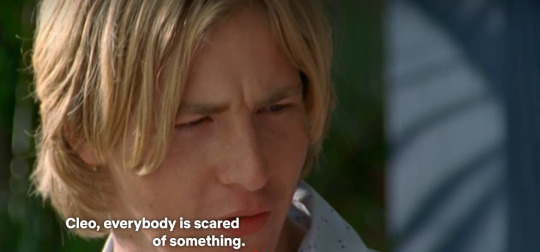



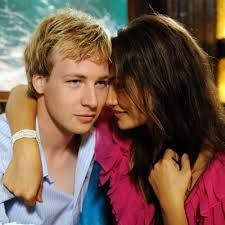
with borax and glue:

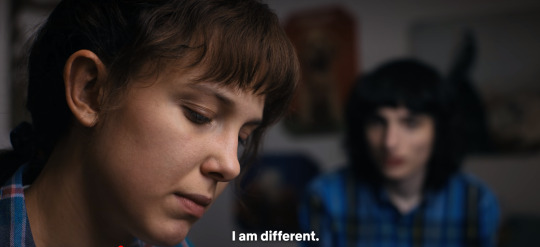
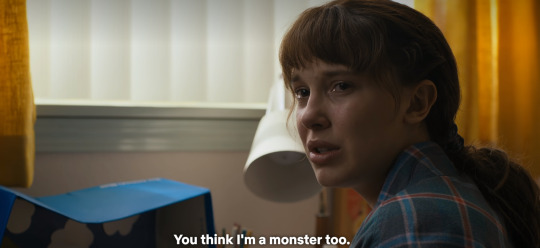

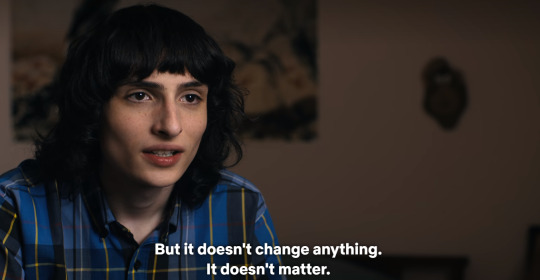
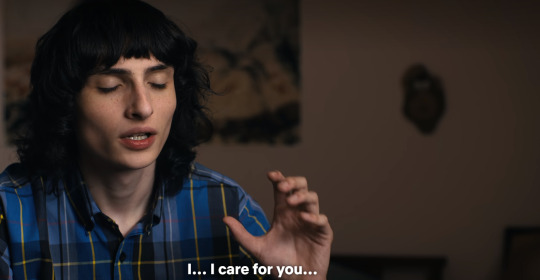

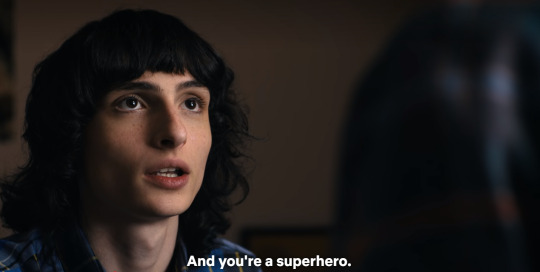
result:
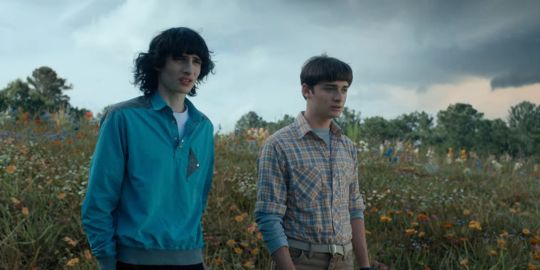
#byler#h20 just add water#h20#cleo#cleo sertori#lewis mccartney#stranger things#stranger things 5#stranger things 4#the monster and the superhero#byler proof#mermaids#mako mermaids#will byers#mike wheeler#byler tumblr#byler analysis#anti mileven
36 notes
·
View notes
Text
The Gendered Gaze in the Superhero Genre
Whenever media objectification of women is brought up (eg. “sexualization of female bodies is because our culture is centered around the male gaze”), some people like to counter with “but what about all the male shirtless scenes in Marvel movies?” The point being made is really that women can’t complain about our bodies being sexualized in media because so are men’s! Another argument is “well, women have been sexualized in media for so long, so let’s sexualize the men, too! Equality!” Additionally, many filmmakers/actors/fans like to justify said male shirtless scenes with “Here’s some eye candy for the ladies!”
But here’s the thing. Sexualization of male bodies in film and comics doesn’t actually cater to the female gaze.
Hyper-sexualization of both women and men in comics increased drastically in the late 80s and defined the 90s, especially with the rise of artists like Jim Lee and Rob Liefeld.
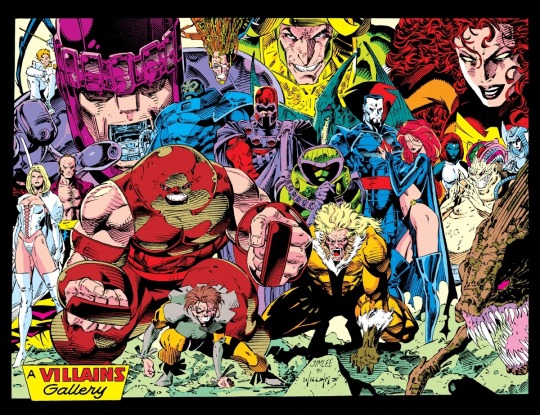
You look at this and think “Hot women for straight men to look at and hot guys for straight women to look at. Sounds equal.” Except, female comic readership declined significantly in the 90s (mostly because of the increasing female objectification). Comics were being distributed to direct-market shops, which were largely male-dominated spaces. Even characters who were historically feminist and targeted at girls were being drawn by artists (Mike Deodato Jr.) who openly referred to their art as “porn Wonder Woman,” and were now being targeted at straight men. As far as the creators were concerned, their readers were predominantly male. Male comic creators were completely uninterested in catering to women. Their hyper-muscular male characters were targeted at men as power fantasies, and that’s really all there is to it.
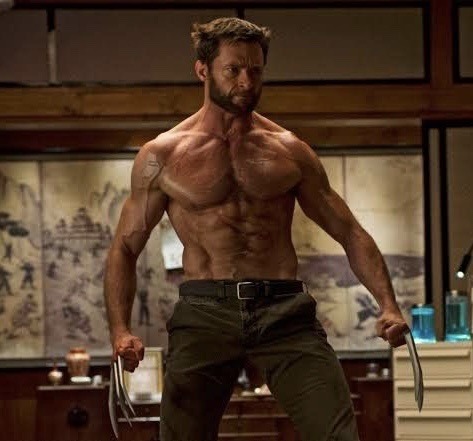
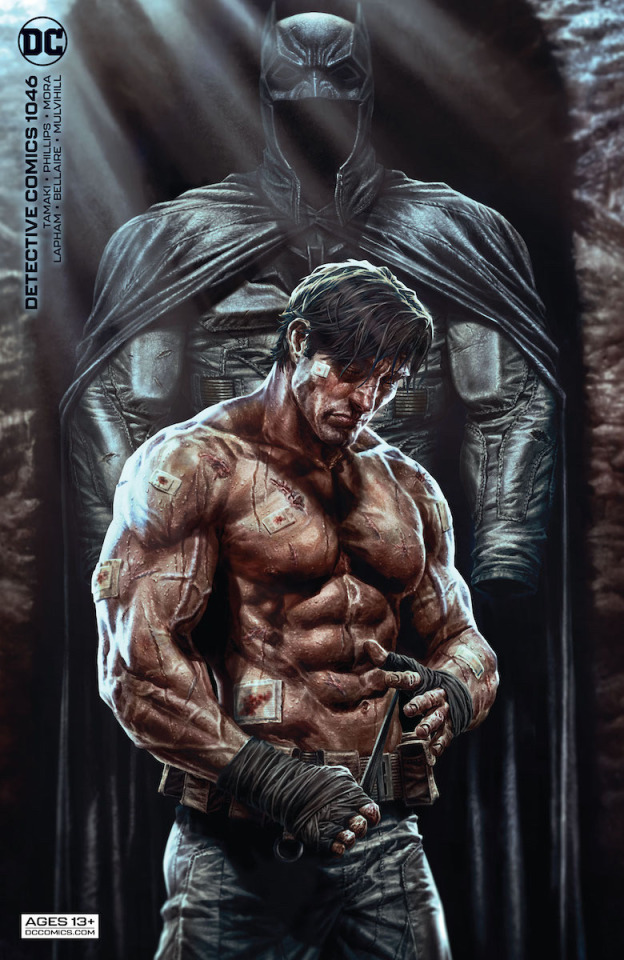

These portrayals? Plenty of straight women appreciate it, sure, but this is still the male gaze. Male directors might convince themselves that it’s “a little something for the ladies,” but it’s not. It’s continuing a male-targeted trend of the genre.
I’ve watched the Superman movies (1970s to now) with several female friends, and my overwhelming observation has been that they are far more affected by Christopher Reeve’s sweetness and adorable awkwardness than they are by Henry Cavill’s muscles.
As a longtime member of internet fandom, I’ve also noticed a major trend in fanart drawn by women and queer people that actually minimizes the muscle definition of male superheroes, frequently accentuating their body fat and generally making them look very soft and squishy instead of bulging veins and eight-packs.
When women routinely prefer character depth to physical attractiveness; sweetness to big muscles; fuller bodies to tightly muscled ones; hand touches to shirtless scenes; it becomes clear that the “we’re doing this for the ladies 😉” argument has little ground to stand on. It’s not about equality. It’s not about pleasing women. It’s about male power and toxic masculinity.
So actually no, directors have no excuse for dehydrating Henry Cavill and Chris Hemsworth to the point of hospitalization so they can “look like a superhero” and give the ladies some eye candy.
#superheroes#male gaze#female gaze#dc#dcu#dc comics#marvel#mcu#x-men#superman#wolverine#jim lee#rob liefeld#mike deodato jr.#image comics#fandom#henry cavill#christopher reeve#comics#media analysis
86 notes
·
View notes
Text
Me, about TMNT 2003 Season 3 Episode 19 Reality Check:

Everyone else: What the fuck are you talking about?
#tmnt#tmnt 2003#episode analysis#it's so insane to me#that the running - thing with mikey#is that he's a superhero without superpowers#except he is a superhero with superpowers#he's a turtle with human powers#there were other things he could have had as part of his character#but instead of doing something interesting#they did something confusing#and they made that the point of an episode about him#'oh you're a hero even without superpowers'#come on#like the big brawl didn't already happen#instead of like#addressing the fact that he killed the alternate reality version of his father#who wanted to kill humanity for treating himself and his sons like inhuman monsters#can we get a little attention on that#please#I look insane
24 notes
·
View notes
Text
i was rewatching the 4x08 car scene again and i just can't get over how mike never even mentioned that he loved el at all when he was talking to will. he was just going on about how he feels inferior to her and he's afraid she won't need him anymore because she's a superhero. he didn't mention anything about love. he didn't say "i'm scared she won't love me anymore" or "i love her so much for these reasons and who she is as a person, that's why i can't lose her and blah blah blah". nope. nothing to do with love. he couldn't even mention anything about her outside of being a superhero because the sad truth is he barely even knows her. mike and el barely know each other because they can't even be themselves around each other and they don't even share any of the same interests. they always lie to each other too.
the entire time he was talking to will, mike was just pitying himself and talking about how he's scared she won't need him anymore because he’s a nerd and he’s insecure about himself. he also kept going on about how she was "born special" with powers. again, nothing to do with her as a person or loving her, but just that she's a superhero and he wants to be needed. he also said it wasn't fate or destiny but simple dumb luck that he stumbled on her in the woods (later on in his monologue, he lies and acts like it was love at first sight. we all know he doesn't believe in love at first sight either. ugh mike what are you doing). he even said she was just lonely and vulnerable and needed help and he just happened to be there... that's about it.
and remember in 4x04 when mike was talking to will, he said "maybe i should've said something, and if i would've said that thing, then maybe she'd want me there with her, wherever she is"?? he couldn't even specify what "that thing" was. he didn't mention anything to do with saying the words "i love you". it's just so weird how he couldn't say it to will. mike also said it felt like a fight they can't come back from. if he’s afraid she won’t need him anymore and he saw her sobbing in front of him AND he knew she wanted to hear the words "i love you", why didn’t he just say it? he could've prevented the fight entirely and he could've stopped her from going with owens (or she would've taken him with her, like he said to will). like seriously this entire "mike can't say he loves el because he finds it hard to express himself and he's scared of losing her" is the most ridiculous arc because it reduces mike to just being el's boyfriend and not having his own character development AND there are so many things that don't make sense because mike constantly lies and contradicts himself. "he's just a teenager" just isn't an excuse. it's actually a mess from a writing standpoint and it's even more horrible because they used will's feelings as a plot device and the only reason mike ended up saying he loves el is because of will. he was literally responding to will's confession but he just doesn't realise it. mike’s monologue to el wouldn’t have happened without will.
that’s why it only makes sense if all of this is intentional and they talk about it again in season 5. mike will find out about the painting and monologue and realise his true feelings for will and el will also realise she doesn’t need mike, even though that’s nothing new. we already know that because they made it very clear when she made the decision to go with owens even though she was warned she might not see him again. she also sent him a letter saying “from, el” which says more than enough. and will deserves to finally get his happy ending for once and be with the boy he’s loved since the beginning since he’s suffered every single season. otherwise what was the point in doing all of this? for a bit of extra drama that doesn't even make sense? nah
#byler#byler analysis#yes i've said most of this already but i just thought about it even more again and it's just so crazy that mike didn't mention loving el#like all he spoke about was that she's a superhero and he wants to be needed#are you kidding me
264 notes
·
View notes
Text
A lot of Batfamily fans like fan content which dives into the trauma of some of them being siblings with people that have tried to kill them. While they aren't wrong, I would posit that they need more fan content which addresses the real issue here: the Batkids should absolutely make fun of those of them that failed at murdering one (or more) of the others.
I'm just saying, if my sibling failed at killing me or another relative, I would mock them about that until one of us died for real. I would give them birthday cards talking about how they truly put the 'attempted' in 'attempted fratricide'. I would ask them if they remembered their cringefail murder skills. I would bring that up at the slightest provocation. Anytime they got annoyed at me for something, I would be like, "What are you going to do, kill me? It's not like you're any good at it!"
#not my usual content#but it needs to be said#I have determined this after an in-depth survey of batfam fandom trends which is definitely for the love of genre and not for data analysis#[Scrambles to close suspiciously graph-looking windows on my computer.]#batfam#batman#dc universe#comics#superhero genre#siblings
13 notes
·
View notes
Text
I HAVE STRONG FEELINGS ABOUT THE LATEST EPISODE OF MY ADVENTURES WITH SUPERMAN
and I have no one in my immediate vicinity to hear me rant
*spoilers for episode 5*
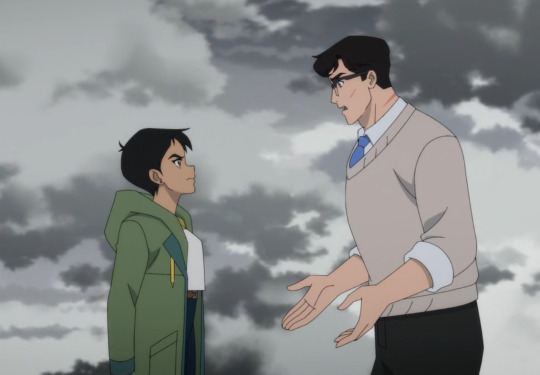
Clark-"You hated Superman. You said he was a liar, and you were going to find and publish his secrets. My secrets."
Lois-"I would never do that to you. I had no idea it was you until after the gala. How could you think that?"
Clark-"You jumped off a roof! I don't know what to think!"
Clark Kent and Lois Lane have liked each other since the beginning of the series. They become close and trust each other. Aside from Clark thinking Lois is cute, he also respects her ambition and passion for journalism. Even when her hunt for the truth will directly hurt him, Clark doesn't hold that against her. I think Lois loves his kindness and honesty. She can always rely on him to be there for her or anyone he cares about.
But Lois jumped off a building. She knows Clark will always come to save her, and she exploits him and his powers to get the truth.
Lois has to consolidate the honest person she knows Clark is with the liar she's prescribed Superman as. This is not made better now that, in her eyes, Clark has been lying to her. Clark, on the other hand, has been perceived as both an honest man and a liar by the woman he loves in one breath. Lois, who has, in the past, put herself and sometimes Jimmy in danger multiple times, has just proven that she will do anything to get the truth. But as soon as Clark tells her he was afraid to tell her because she is obsessed with finding out who Superman is, she says she would never do something like that. Clark seeing her abandoning her strong convictions about Superman for Clark Kent probably makes him feel conflicted. It's clear that she loves him enough to push aside her fixation, but it disrupts this moral code that was probably one of the things he liked about her most. What is he supposed to think when a piece of information she was willing to jump off a building for is suddenly disregarded?
That's not to mention that Lois feels entitled to the secret identity of Superman because it's her big story. If it wasn't Clark, she'd share this information with the Daily Planet as soon as she found the truth. She never saw Superman as someone who deserved some mercy past her scrutiny until it was Clark. And even after knowing that she doesn't respect that Clark, a person she admires, trusts, and loves, kept this secret from her for a reason. And she doesn't recognize how her actions may be one of those reasons.
I really hope this gets addressed further. There is a lot of nuance in this situation and different perspectives to explore. I know I put a lot of blame on Lois, but she jumped off a building, and I think that needs to be examined. There was so much I wanted to talk about with this scene in particular. I had to ask multiple people how they would feel in this situation because all I felt was conflicted. If you have another read of this moment, or anything related. Please comment or reblog. I know I'm not the only strong opinion and I know there are a lot of takes. This scene has been stuck in my head for several days and I want to talk about it.
#superhero#character analysis#dc comics#superman#my adventures with superman#clark kent#lois lane#lois and clark#kryptonian himbo#it's rant o'clock
46 notes
·
View notes
Text
have been reading renegades and it’s so funny because it’s like worm for kids. girl infiltrates a groups of people with powers initially intending to spy on them but eventually comes to sympathize with them and also has a boyfriend on the team. in the end she defects to the heroes for the greater good. it’s worm without the best parts (alec and aisha. i say ‘and’ because there is a dude named alec) and the really great worldbuilding that made the powers somehow feel grounded and the wonderful character work. also there’s no homophobia. how is the book i’m reading supposed to feel realistic when there aren’t at least a few predatory queer people? :(
#slash jay#for the last part#wormblr#parahumans#yes the name does make me think of the dance#also thanks to wildbow for ruining all superhero media for me#‘it’s good’ yeah but it’s not worm#i just gotta write my own i guess#i’m going to be honest#every time i write even mildly analysis-y posts like this#i try to emulate lakesbian#it’s not on purpose but also im painfully aware when i read them back to myself#thank you to lakesbian for reshaping a bit of my personality#👍#why am i writing this no one is gonna see it
28 notes
·
View notes
Text
Was thinking about the way people are invested in comic book characters in a way similar to a modern pantheon, again. People are not just invested in the characters themselves, but in their ability to fill roles in a story and their status and importance relative to the rest of the cast.
Then the thought occurred that maybe arguments about interpretation of media and which character is best, etc, is just a direct successor to theological debates and conflicts.
And then I remembered Snapewives.
And now I'm really suspecting I'm correct.
6 notes
·
View notes
Note
Hi! I've been reading a lot of your thoughts on superheroes, and wanted to ask you a question if that's okay.
I've always been interested in the genre, but lately I've gotten frustrated with how "safe" the entries play it. No matter what, there's always a Justice League, a world built on superscience, and most "importantly" of all, a Superman. I wanted to ask if all of these things a required for a superhero story, and if so, how far can they be stretched while remaining within the genre?
My conjecture is that from a bunch of directions, it’s a legibility issue.
Long swaths of rumination under the cut.
The superhero genre, out of all genres, is one of the most self-referential; it’s subject to an exaggerated, snowballing and self-reinforcing instance of the Mount Fuji Problem, as laid out by Terry Pratchett:
“J.R.R. Tolkien has become a sort of mountain, appearing in all subsequent fantasy in the way that Mt. Fuji appears so often in Japanese prints. Sometimes it’s big and up close. Sometimes it’s a shape on the horizon. Sometimes it’s not there at all, which means that the artist either has made a deliberate decision against the mountain, which is interesting in itself, or is in fact standing on Mt. Fuji.”
Superman is Mt. Fuji.
Superman is enormously popular. The first modern superhero, the one the rest of them are patterned on or in conversation with. In the early days, a lot of superheroes were just naked attempts to cash in on Superman, to the point of IP slapfights (This is how DC acquired the rights to Shazam/Captain Marvel.) In the interregnum period caused by the Wertham Scare, he was one of the only superheroes that survived and saw continuous publication. As a result of this bottleneck, superheroism is a genre monoculture; all characters conceived of as “superheroes” are only a couple of creative generations removed from Superman. All of this gives him- and characters patterned directly on him- an outsized influence in both the public and authorial perception of what a “superhero” looks like.
So fifty years down the line, when you’ve got creatives crawling out of the foxholes to try and make some superhero things that are new and innovative or parodic, a few things start happening:
Number 1. Superman is Very Legibly a Superhero. Superheroes, up until the MCU boom, were pretty niche in the mass market; a lot of pre-MCU films (and actually a lot of MCU films, this is my perennial beef) are structured in a way that makes it seem like they’re apologizing for daring to be superhero properties. Note the aversion to code names, the costuming choices made in the X-Men films, the irony poisoning. Superman was one of the exceptions to this, (Others being Batman and Spider-Man;) he’s too iconic. He’s one of a handful of characters who’s clearly a superhero and nothing else. (I’m going to return to this point later.) So if you wanted to invoke superhero at a glance in a mass-market property, making them have costumes and/or powers like Superman (sometimes with hints of Batman) was a fast way to communicate this. As the number of works that do this increase, the gravity of the bias swells because of the pool of precedent- the likelihood that your audience has seen not just Superman, but numerous parodies of Superman. (I was friends with a woman once who knew almost nothing about Superman beyond the fact he existed, but upon being told the broad strokes of his backstory, said, “oh, like in Megamind!”)
Number 2. Superman attracts the interest of Creatives and Iconoclasts. This is the non-cynical take on the above; Superman’s outsized presence in popular culture means that inevitably, a lot of really competent writers are exposed to him, grow up with him as one of their blorbos, and rotate him in their head non-stop for years until they’re finally in a position to write something. The Superman pastiches in Astro City and Irredeemable and Supreme Power and Invincible and Jupiter’s Legacy and The Authority and BNHA and Powers and on and on and on- they’re in there because the writers wanted to tell a story about superheroes, sure, but more specifically they want to yell their hot takes about Superman, who they love, out to the world. And many of these stories are thoughtful and reflective of the human condition or whatever, and so the canon of “Oh my god you have to read this” superhero works, inevitably start to contain tons and tons of Supermen pastiches. (And Batman pastiches; he’s subject to a similar dynamic.) The effect is reinforced.
Number 3. Even in niche or fan-oriented superhero works that don’t suffer from the above-described marketing pressures, familiar character archetypes are useful shorthand that lets you get to whatever novel point you’re trying to make faster. This applies to Superman, who I’ve focused on up until this point, but this is also a good point to start talking about one of the other things you mentioned, the Justice League.
In Invincible, the Guardians Of The Globe, world’s premier superhero team, are 1-to-1 pastiches of the classic Justice League Lineup. I own the ultimate collection in which Kirkman explained that choice; beyond the fact that they were very powerful heroes, and that it was very very bad for the world that they were dead, the actual nature of the Guardians was immaterial to the story. All things being equal, it therefore made the most sense to him to just piggyback off pre-existing comic book fan affection and reverence for the JLA, because his editor was breathing down his neck to get the actual story moving after the six issues of relatively low-stakes adventure that Kirkman had insisted on in order to make the reveal hurt more.
Strong Female Protagonist is (was?) a webcomic about the world’s most powerful superheroine sliding into semi-retirement after neutralizing all the superheroic threats and realizing that her actual toolbox with which to enact lasting societal change is pretty limited. There are a lot of powersets you could give to the most powerful hero in your setting; a lot of aesthetics you could give her; actually, by making her a woman at all you’re already breaking the mold. But there’s utility in starting somewhere bog-standard so that everyone’s on the same page when you start doing the social commentary.
Black Summer is a story about John Horus, the most powerful hero in the world, deciding that the only way to stay consistent with his commitment to evenly applied justice is to execute George Bush for War Crimes, explain why he did so, present the evidence, and ride off into the sunset; his five surviving teammates are then left holding the bag as a pissed off military closes in. The most powerful hero in this case is pointedly designed to look more like Magneto than Superman, but the seven-person team dynamic is clearly meant to broadly invoke that of the Justice League; this gives the readers somewhere to start when picturing what the team dynamic looked like before it collapsed, and it makes the ways in which the group is really obviously not at all like the Justice League pop.
Superhero story which are about someone needing to replace the world’s greatest superhero? Often rely on this fan-legible shorthand. (BNHA, Dreadnought, a couple others.) Stories in which the most powerful hero died as part of the backstory and left an imperfect world for the survivors? Often rely on this fan-legible shorthand. (Welcome to Tranquility, Renegades, etc.) Stories about the kid of the world’s most powerful hero trying to live up to their expectations? Often make use of this fan-legible shorthand (Sky High, Hero, etc.)
Extend it to other individual superheroes. You want to critique the economic injustice implied by superheroism, or the ways in which it would physically and socially destroy you? It’s efficient to invoke Batman or Iron Man, quintessential billionaire powerless capes, and go from there. You want to examine the hellish existence of the working-class teen superhero? Efficient to invoke Spider-Man and go from there. You want to examine the uphill battle of the female superhero in a male-dominated field? Efficient to invoke Wonder Woman and then go from there.
When you can simultaneously save time and creative energy AND demonstrate to your audience that you know the genre canon, the shared referents, the in-jokes- why reinvent the wheel?
The effect is reinforced.
Number four. In works that are about a more unconventional or unique superhero, A tertiary Superman-figure can be a useful genre signifier.
So, the obvious rebuttal you could provide to everything I’ve said so far is that the superhero genre is obviously, comically, massively more diverse than just Superman and copies of Superman. You can make a superhero based on almost anything, intersecting with almost any genre. This is, in fact, the key to the genre’s longevity; the degree to which “Superhero” is such a nebulous genre category that you can cram basically anything into it and have it work. You can remix it forever.
However, this is a double-edged sword; while a superhero universe can accommodate literally anything, many of the resultant “superheroes” are superheroes purely because they exist in the context of a superhero universe; they stop existing as such if removed from it. Blade is a superhero, but the Wesley Snipes Blade films are not really framed as superhero films. Doctor Strange, extracted from the rest of Marvel, could just be an Urban Fantasy property. Green Lantern and Nova and Captain Marvel could be yoinked out and reframed as participants in the Space Cop flavor of Space Opera. Context-scrubbed Thor could be high fantasy. Context-scrubbed Hulk could be a monster movie. Context-scrubbed Guardians of the Galaxy becomes Space Opera. Ant-Man wasn’t originally a superhero; Hank Pym debuted in a one-shot horror/adventure comic about a scientist who nearly gets killed fucking around with a shrinking formula and an anthill, and then he got retooled when Marvel realized superheroes were coming back. Logan was a fantastic film but like many X-men films it divested itself from the framing of superheroism as much as it possibly could. On the opposite side of things, you could take a property like Buffy The Vampire Slayer- generally not viewed as a cape thing- and slot it into the Marvel or DC universe without having to alter anything. If someone like Shepard from Mass Effect, with their armor and future-weapons and/or their biotic powers, crash landed on Marvel or DC Earth, they’d transmute into a superhero just by virtue of who they’re now standing next to when shit starts going down. (This is the backstory of at least three superheroes, probably more.) Superheroism is incredibly fluid. It’s incredibly modular. It’s incredibly contextual.
There are a handful of characters, though, for whom this isn’t true; as I mentioned above, they’re superheroes and nothing else. They’re the platonic implementations. Batman is one example; the most grounded and gritty version of the character ever put to film still couldn’t get around the fact it was about a vigilante in a bat costume beating up the mob. Superman is another; It’s basically impossible to make a Superman film that downplays the iconography, the power, the social position and license of the superhero. The social position and license are huge parts of this!
So, if you’re gonna write a story about a unique superhero- a superhero with a cross-genre origin, or an unconventional aesthetic, or really esoteric powers- a way to keep your story anchored in the genre is to include a Superman-style figure or a Justice-League style organization as a tertiary presence within the worldbuilding, in order to make it 100 percent clear to your audience what lens they’re supposed to view this story through, and to emphasize the contrast posed by your esoteric cape. Worm does this, juxtaposing a protagonist who controls bugs and thus has to fight like a maniac for every victory against an all-powerful Superman-analogue who exists in the background of the setting (although he swells in narrative importance in the back half.) Another example is The Shadow Hero by Gene Luen Yang, which is a comic about a Chinese-American vigilante in the 1930s who, due to a poorly worded pact with a spirit, becomes invulnerable to bullets and nothing else; a more traditional Superman Analogue called “The Anchor of Justice” exists in the background of the setting, only getting a couple of speaking lines, and is mainly used to demonstrate the double standard society applies to superheroism when someone other than a white guy starts doing it. Incredibles does this as a background gag, with the sheer number of heroes in Edna’s “no capes” montage who were clearly trying to fill the Superman niche but continuously couldn’t cut it. Valiant comics did this. Wild Cards I think did this. City of Heroes I think was doing something like this by having prototypical flying-brick Statesman as an NPC while all the PC heroes were (by virtue of being PCs) significantly more diverse and outlandish in powers and presentation. There are other examples of this juxtaposition trick that I’m not thinking of.
So, what are some works that don’t do this?
Here’s a non-comprehensive sample of works that unhook themselves from the standbys;
First off, The Marvel Universe. I think I’ve talked a few times about how the Marvel superhero community is pretty heavily dysfunctional, disjointed and fractious in comparison to the DC superhero community; The Avengers are an absolute shitshow in comparison to the Justice League, as individuals and as an organization. It’s easy to forget due to their total conquest of contemporary pop culture but Marvel was churning out unconventional cape after unconventional cape for years without stepping on DC’s toes; for a long time they were the answer to this question. Any time that Marvel has played at adding a Superman analogue to the setting, it’s usually in the context of pointing out how radically different the setting would work if there was a number-one top-tier hero like that running around.
Heroes, the first season at least, is heavily in conversation with traditional superheroism without actually featuring any of the aesthetic markers within the show itself; no costumes (because supers are simply too new as a widespread phenomena to have the institutional backing for that) no obvious Superman figure (one power per person) and the handful of cast members trying to behave like superheroes are explicitly doing so because of the existing cultural referents of fictional superheroes; by the end of season one nobody has made it all the way to the finish line in terms of costumes and codenames.
Absolution, a comic miniseries by Christos Gage about a superhero who snaps and starts playing Dexter, using his versatile forcefield powers to emulate dozens of different murder weapons so that the killings can’t be traced back to him. The setting is aggressively and deliberately street level, with almost no obvious character analogues, a host of novel powers, and “superheroes” that are universally incorporated into police departments as superpowered SWAT teams. However, the books politics are noxious; it seems that the author’s objection to the police is that they don’t kill enough people. But I bring it up because it’s visually clearly a superhero work while still having a strong aesthetic aversion to all of the tropes you specifically mentioned.
No Hero by Warren Ellis, which is about a superhero team created in the 1960s by a counter-culture chemist who stumbled upon a psychedelic drug that provides superpowers. The team is, in universe, very visibly attempting to carve out an aesthetic identity independent from that of traditional superheroes, brutally fighting crime in varied combinations of gas masks, latex, and evening wear; the group is also tiny, due to the team’s founder being rightfully paranoid that the government is going to jump on his secret recipe. It’s also an incredibly visually horrific book. Body horror galore.
Uber by Keiron Gillen is an alternate history in which World War 2 was fought by super soldiers, developed initially by the Axis and then by an increasingly-panicked America and Britain. The project of the comic was to repudiate the idea of the superhero as an individualist figure who can overcome anything through grit and moral righteousness; in the words of Gillen, it’s a comic about how Galactus is going to beat Spider-man, every single time. In keeping with this, the superhumans are fairly cookie-cutter (developed in batches down known lines of research) the outcome of superhuman fights are determined purely by which of the two superhumans were better made, and as military projects the “heroes” are named using the same conventions as battleships (USS Colossus, HMS Dunkirk, etc.)
Watchmen is an interesting situation. The one powered hero, Dr. Manhattan, is mainly used as an exploration of Superman’s geopolitical impact- the effects of the most powerful thing in the world being an American agent. But in terms of actual origin and aesthetic Manhattan is primarily in conversation with the Marvel Stable; a lab-accident origin, space-age energy powers, presence within the setting’s second wave superhero resurgence rather than having gotten in on the ground floor. That one is picking and choosing recognizable elements in order to do a bunch of different things at once.
Most of these tie back to the Mount Fuji thing; the absence of immediately recognizable figures in these works are, due to the volume of precedent, themselves a very pointed and noticeable choice. Sometimes even a choice the characters themselves are making within the story. And this presents a challenge to any capefic author who deliberately eschews familiar archetypes because they’re sick to death of them; go too far out of your way to excise Superman from your story, and you run the risk of just providing implicit commentary on his ubiquity instead. Damned if you do, damned if you don’t.
-------------------------------------------------------------------------------------------------------
One last note; you clarified in DMs that the “super science” you were referring to was that of the crop of pulp heroes; Doc Savage, The Shadow, The Phantom, et al et al. I think something different is going on here from everything else I’ve been going on about. When superhero settings incorporate these proto-heroes, it’s part in-joke and partly a nod to legacy; these were the characters immediately preceding Superman and Batman, the prototypes, the incubators for a lot of ideas and aesthetics that later superheroes would take and run with. Many 1930s-1940s superheroes are visually the “missing link” between the two genres; examples of this include The Spirit, The Sandman, and The Green Hornet. In superhero settings that are built “from scratch” outside of the big two, with a setting history that stretches back before the 1930s, it’s therefore common to incorporate a few figures patterned along these lines as a form of tribute. The flip side of this is that the archetype is also very easy to attack and parody; many of the pulp “men of science” were predictably tied to very yikes-inducing ideas about race, gender, and so forth, and thus if you want to criticize the basic assumptions of heroism, one way to do this is to take the archetypes at the root of the genre and then make them period-appropriate jackasses.
I’ll cop to being significantly less informed about this last bit, and thus significantly less confident in the conclusions I’m drawing about it; I’m therefore going to refer you over to @maxwell-grant, who’s very into the pulp hero side of things and can probably give you a more informed perspective both on how the science hero types informed the development genre, and the varying degrees to which they’ve hung around as both objects of tribute and parody.
#thoughts#asks#superheroes#marvel#dc#meta#media analysis#this ran pretty overlong but I think I covered most of the bases#But I'll acknowledge there's a decent chance I overlooked some important element you were trying to get at#so feel free to follow up if this didn't get at everything
279 notes
·
View notes
Text
In Justice League x RWBY: Superheroes and Huntsmen Part 2, Team RWBY are seen using weapons that are definitely not their trademark tools. I was confused, but then I realized;
Their usual weapons run on Dust. Dust only works on Remnant.
14 notes
·
View notes
Text
A thought occurs to me:
Okay this is one that other people have probably pointed out already but fuck it I'm relatively new to Wormblr so....Okay we all know that Wildbow dissects and does interested things with various comic book hero archetypes with his characters. Skitter as a deconstruction of the Spider-Man archetype, Alexandria being an interesting take on "Evil Superman" and so on.
But hear me out.....Taken by a secretive organisation, subjected to body modifications and having their memory wiped with the intention of being used as a weapon before escaping and being taken in by an institution and ultimately making their way onto a team of heroes, whilst still struggling with questions about their past and the exceptional violence they're capable of and don't have total control over.
Sveta Karelia is a take on Wolverine
#Wormblr#Wildbow#Parahumans#worm web serial#ward web serial#sveta karelia#Wolverine#X Men#marvel comics#Weapon X#Cauldron#Story analysis#Character analysis#character archetypes#writeblr#superhero
154 notes
·
View notes